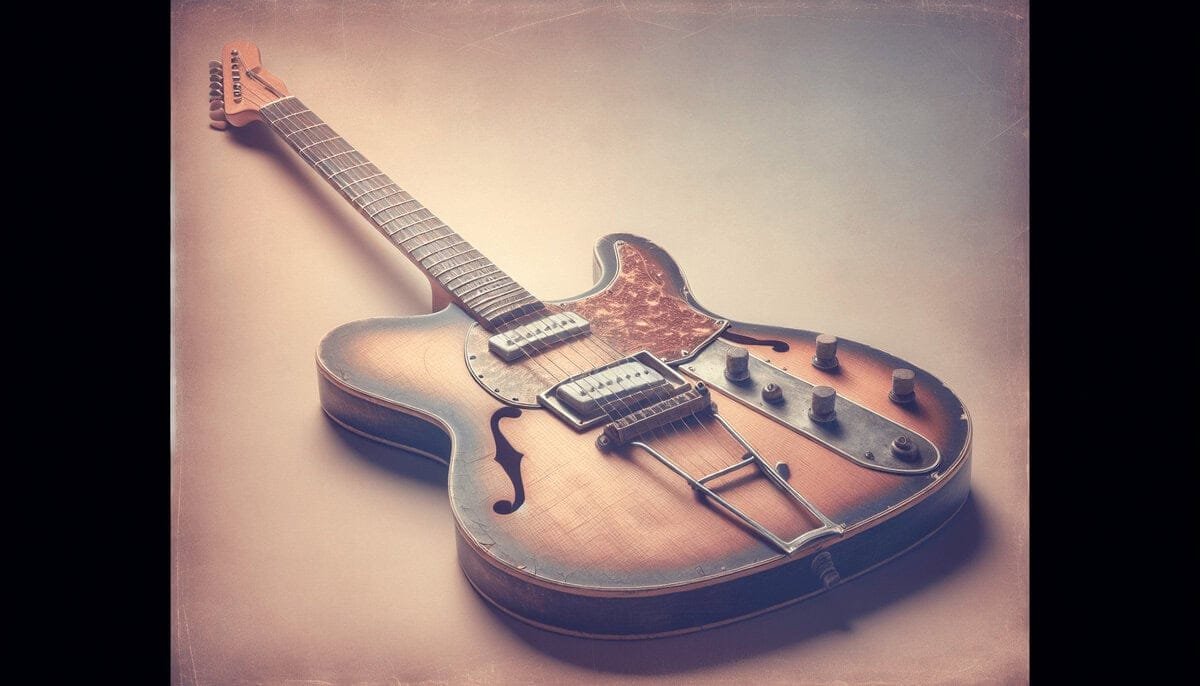Have you ever been curious about the magnificent individuals who shaped the world of jazz music? In the pantheon of jazz legends, few capture the imagination quite like Charlie Christian. This virtuoso not only revolutionized the role of the electric guitar in jazz but also left an indelible mark on the music world with his innovative style and compelling performances. Let’s embark on a journey to understand the essence of Charlie Christian, delving deep into his life, his contributions, and the ways in which he helped mold the future of jazz music.
The Beginnings of a Jazz Virtuoso
Understanding Charlie Christian’s early life is pivotal in appreciating his later achievements. Born on July 29, 1916, in Bonham, Texas, Christian grew up in a musical family. His father, Clarence Henry Christian, was a blind itinerant singer and guitarist, which exposed Charlie to music at an early age. By the time he was in Oklahoma City, Charlie had already embraced the guitar, an instrument that would soon become a significant extension of his musical expression.

Musical Influences and Early Performances
Charlie was heavily influenced by the swing and blues music prevalent during his childhood. His initial education in music came not from textbooks, but rather from the streets and the vibrant musical environment of the time. It was in Oklahoma where Christian developed a style that was rooted in but transcended traditional jazz motifs. He started performing in various bands, where his prowess with the guitar began to shine.
Discovering the Electric Guitar
While the acoustic guitar was his primary instrument in the early days, the discovery of the electric guitar was a turning point for Charlie Christian. The electric guitar gave his music a new voice, a louder and more dynamic sound that could hold its own against horns and pianos. His innovative approach with this then-novel instrument allowed him to experiment beyond the conventional boundaries set by acoustic guitars.
The Rise to Fame
Charlie Christian’s breakthrough came when he joined Benny Goodman’s band in 1939. Goodman’s ensemble was already famous, a vibrant focal point of the American jazz scene, and Christian’s addition was like adding a flame to an already glowing fire.
The Benny Goodman Era
Playing with Benny Goodman, arguably one of the biggest names in jazz at the time, afforded Charlie Christian the platform to showcase his prodigious talent on an international stage. With Goodman, Charlie participated in numerous recordings and performances, imbuing each with his inimitable flair. One of his most memorable recordings is “Solo Flight,” a masterpiece where Christian’s guitar sang with captivating clarity and intelligence.
Impact on Jazz Guitar
Before Christian, the guitar hadn’t fully emerged as a lead instrument in jazz ensembles. It was often relegated to the background, assisting with rhythm and harmony. Christian’s playing, however, catapulted the guitar to the forefront of jazz instrumentation. His ability to blend complex improvisation with the swinging rhythms of the era redefined what was possible for the guitar, inspiring countless musicians who followed in his footsteps.
Bridging Musical Worlds
Charlie Christian’s music wasn’t just about redefining jazz guitar; it was about breaking barriers and bridging different musical worlds. He seamlessly blended elements from blues, swing, and the burgeoning bebop movement, crafting a sound that was as forward-thinking as it was rooted in tradition.
Influence on Bebop
As bebop began to shape the modern jazz landscape, Christian was at the forefront. Often playing alongside notable musicians like Thelonious Monk and Dizzy Gillespie, he was part of the creative fermentation that characterized early bebop sessions. His style demonstrated the advanced harmonies and intricate solos that would later be hallmarks of bebop music.
A Legacy of Innovation
Charlie Christian didn’t just adapt to new styles; he helped forge them. By merging different genres, his work laid the groundwork for future jazz innovators. The phrase “ahead of his time” is casually tossed around, but in Christian’s case, it was profoundly true. His forward-thinking approach to music, combined with his versatility, continues to influence new generations of musicians.
A Life Cut Short
Tragically, Charlie Christian’s promising career was curtailed by illness. He contracted tuberculosis, a common affliction of the time, which led to his untimely death at the age of just 25 on March 2, 1942. Despite his brief career, his influence both during his life and after remains immeasurable.
A Lasting Impact on Music
Even in his short life, Christian left behind a rich legacy. Several posthumous recordings became jazz standards, influencing the development of the genre long after his passing. Tracks like “Seven Come Eleven” and “Breakfast Feud” remain touchstones for jazz guitarists, serving not just as historical artifacts but as inspirations for aspiring musicians.
Honoring the Legend
Christian’s contributions to jazz have been recognized posthumously through numerous honors. Induction into the Down Beat Jazz Hall of Fame and the Oklahoma Jazz Hall of Fame are testaments to his lasting impact. Musical festivals and awards continue to bear his name, ensuring that his legacy is celebrated and remembered.
The Enduring Influence of Charlie Christian
Charlie Christian’s impact on jazz and music, in general, goes far beyond his innovations with the guitar. His artistic vision helped shape the course of jazz, leaving a legacy that enriches the genre to this day.
Inspiring Future Musicians
Christian’s pioneering work with the electric guitar continues to inspire musicians across various genres, from jazz to rock. Artists and guitarists frequently study his recordings to glean insights into his technique and improvisational style. His influence extends beyond jazz, with many rock guitarists acknowledging the profound impact of his playing on their approach to the instrument.
Contributions Beyond Music
Although primarily known for his music, Christian’s life and career speak to broader cultural shifts. He was a pioneer not just in sound, but in providing a platform where African-American musicians could push boundaries and gain recognition in a predominantly segregated society. His success laid the groundwork for other black artists to emerge and thrive in the world of jazz and beyond.
Continual Reverence and Study
Academics and musicians continue to examine and discuss Christian’s music, finding inspiration in his nuanced approach to improvisation and harmony. Books, documentaries, and academic papers focus on understanding his technique and the larger cultural movement he played a part in shaping.
Reflecting on a Jazz Icon
In many ways, Charlie Christian’s story is a narrative about exploring and expanding the possibilities of music. His brief yet monumental career left a creative legacy that challenges musicians to push beyond traditional boundaries and enter new realms of expression.
Conclusion: A Lasting Legend
In the world of jazz, Charlie Christian remains a towering figure. His pioneering use of electric guitar stands as a benchmark of innovation, forever altering how we perceive the instrument. His influence permeates numerous jazz forms, underscoring the fact that genius isn’t always measured by longevity but by impact. For any fan of jazz or music history, appreciating Charlie Christian’s contribution offers insight into not just a transformative period in music but the enduring power of innovation.
Meta Description: Discover Charlie Christian: the jazz legend who revolutionized the electric guitar. Explore his life, innovations, and lasting impact on musical history.


